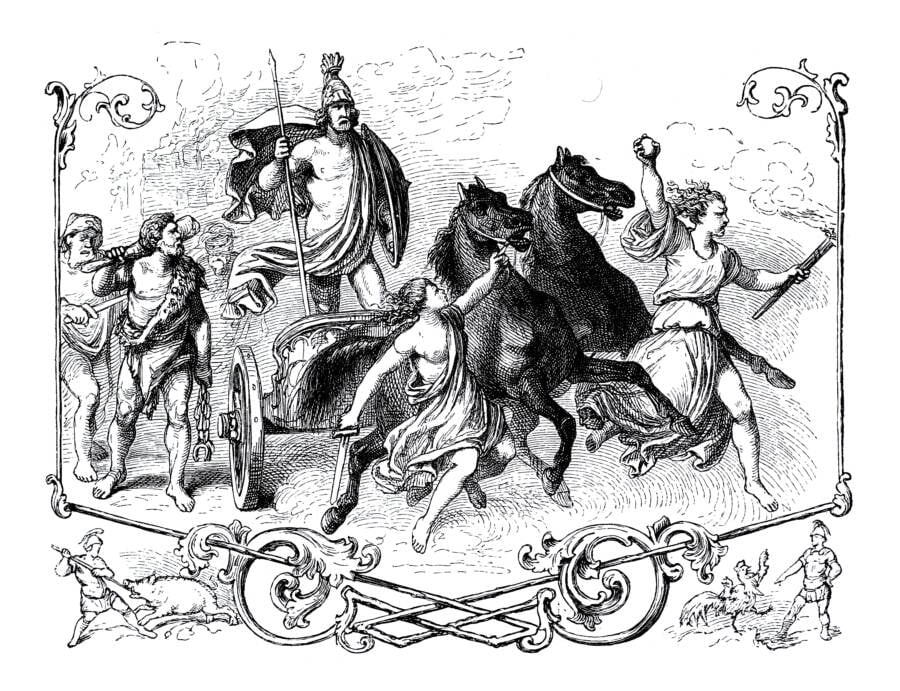Ares, The Olympian God Of War In Ancient Greece

bilwissedition Ltd. & Co. KG/Alamy Stock PhotoAres, one of the 12 Olympian gods, and the god of war, known to the Romans as Mars.
Ares, the Greek god of war, was an embodiment of the raw energy and tumult of battle. Unlike his Roman counterpart Mars, who was also associated with agriculture and fatherhood, Ares primarily represents the chaotic and destructive aspects of war — one of the few instances in which Greek gods and their Roman variants differed greatly. Ares’ reputation among the gods and mortals was complex, often seen as both a necessary force and a bringer of strife and suffering.
Born to fellow 12 Olympians Zeus and Hera, Ares was not particularly cherished by either of his parents, perhaps due to his fierce and uncontrollable nature. In the mythology of the Greek gods, he is typically depicted as a figure of immense physical strength and aggressive masculinity, relishing in the clamor and gore of conflict. His presence on the battlefield was both inspiring and terrifying, driving warriors to feats of bravery — and blind fury.

Old Books Images/Alamy Stock PhotoAres was a much less sympathetic figure in Greek myth than in Roman.
Despite his fearsome reputation, Ares was not always victorious and was sometimes depicted in less flattering lights. His romantic escapades and entanglements were many, but there were perhaps none more famous than his affair with the Greek goddess Aphrodite. Their affair was exposed by Hephaestus, Aphrodite’s husband, who ensnared the lovers in an unbreakable, invisible net, dragging them to Mount Olympus to shame them before the other gods.
Ares fathered several children who often inherited his martial prowess. Among them were Phobos and Deimos, meaning Fear and Terror, who often accompanied their father into battle. Ares likewise sired the Amazon queen Hippolyta, who features prominently in the myths of Heracles and Theseus.

Public DomainMars Disarmed by Venus and the Three Graces by Jacques-Louis David.
Despite Ares’ importance as a deity of war, he did not enjoy the widespread veneration of the other 12 Olympian gods. Worship of Ares was relatively uncommon, although it did establish significant center in Thrace, a region known for its fierce warriors. The Spartans, renowned for their military prowess, also held Ares in high esteem, and often invoked his name before battle.
In some regions, Ares was worshipped through blood offerings, animal sacrifices — mainly of dogs — and rigorous military training. There was an altar dedicated to him in Athens as well, in addition to the Temple of Ares in Gereonthrae.





